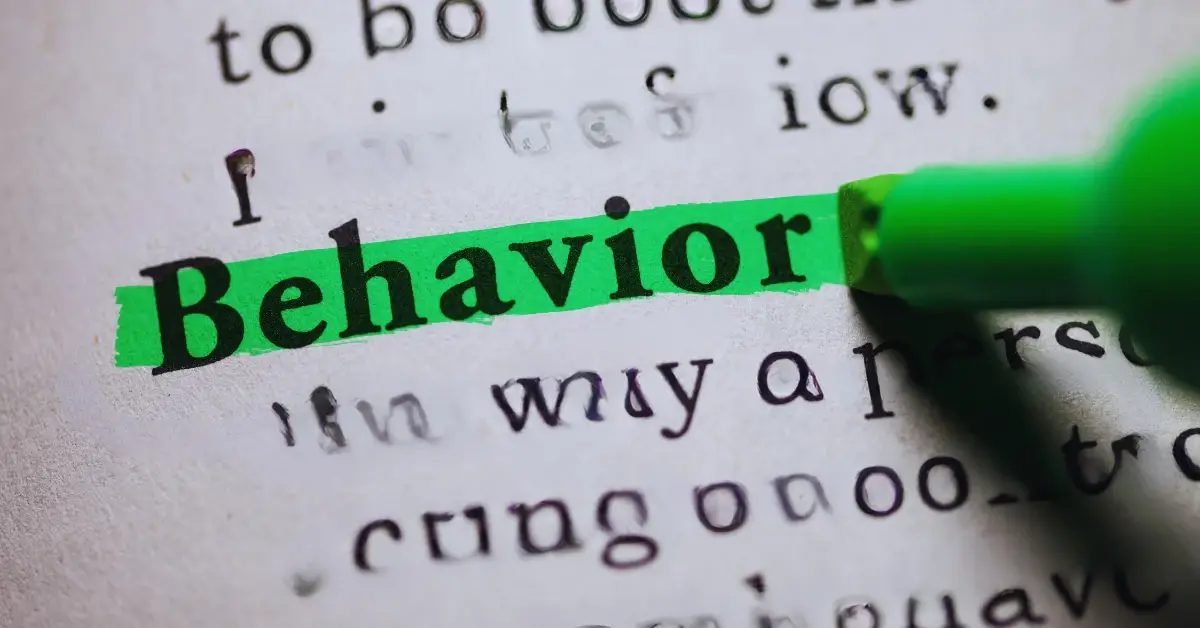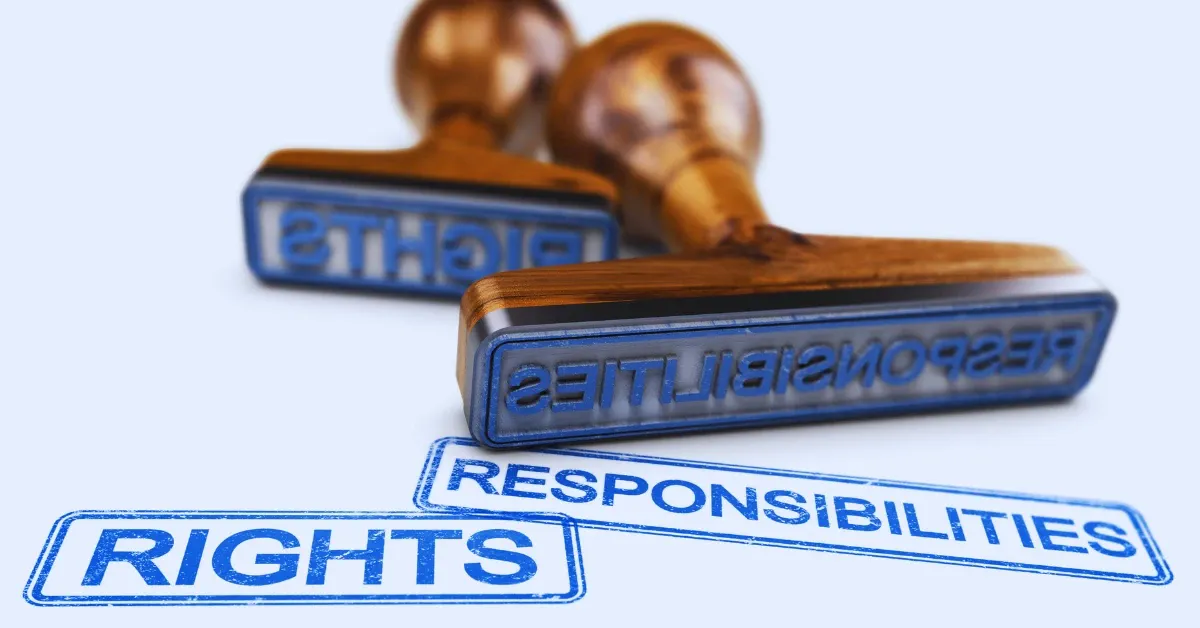Are Landlords Responsible for Tenants’ Behavior?
Landlords are generally not responsible for tenants’ behaviour but may be liable for certain actions if they fail to meet specific legal obligations. As a landlord, it can be tempting to assume that your responsibility ends when you hand over the keys to your tenant.
However, owning and managing rental property comes with numerous legal obligations that must be adhered to. One of the most challenging aspects of being a landlord is dealing with the actions of your tenants. In some cases, this can result in legal complications that can be expensive and time-consuming.
Understanding your duty of care and legal responsibilities is essential if you want to avoid legal disputes and safeguard your rental property’s reputation. We’ll look at landlords’ legal responsibilities and their potential liability for tenant behaviour.

Understanding The Landlord-Tenant Relationship

Overview Of The Landlord-Tenant Relationship And How It Is Defined By Law
The landlord-tenant relationship is a legally binding agreement, which means that both parties have specific rights and responsibilities.
Understanding these rights and responsibilities is crucial to ensure that the relationship runs smoothly.
As a tenant, it is important to be aware of your rights and your landlord’s obligations, while as a landlord, you need to know your responsibilities and your tenant’s obligations.
Here are some important aspects of the relationship defined by law:
- The landlord is responsible for providing the tenant with a safe, habitable living space that meets all building and health codes.
- The tenant is responsible for paying rent on time and properly maintaining the rental property.
- Both parties must follow the lease agreement, which outlines specific terms and conditions for the tenancy.
Different Types Of Rental Agreements And How They Impact The Landlord’S Responsibilities
There are different types of rental agreements that impact the landlord’s responsibilities.
Understanding the type of rental agreement you have is crucial to understanding your legal rights and responsibilities.
Here are some of the most common types of rental agreements:
- A Fix-Term Lease Agreement: A fixed-term lease is a rental agreement that is set for a specific period, usually 6 months to a year, and has a fixed end date. During this time, the tenant pays the agreed-upon rent, and the landlord provides the tenant with a safe and habitable space. The landlord’s responsibility is to ensure that the rental property is in good condition and that the tenant has access to all amenities as outlined in the lease. Once the lease term expires, the landlord and tenant can decide to renew or terminate the lease.
- Month-to-month rental agreements: A month-to-month rental agreement allows the tenant to rent the property on a month-by-month basis without a fixed end date. This type of lease is flexible and provides tenants with the option to move out at any time by providing the landlord with a notice period. The landlord’s responsibility is the same as a fixed-term lease, with the added responsibility of providing the tenant with a reasonable notice period should the landlord decide to terminate the agreement.
- Roommate agreements: A roommate agreement is a type of rental agreement that allows multiple tenants to share a rental property. The agreement outlines the rights and responsibilities of each tenant and their contributions to the rental property’s upkeep and maintenance. In this type of agreement, each tenant is responsible for their portion of the rent.
Understanding the type of rental agreement you have is crucial to understanding the legal responsibilities and rights of both the landlord and tenant.
Ensure that you read and understand your agreement before signing to avoid any future legal complications.
Landlord’S Responsibilities For Tenant Behavior

Analysis Of A Landlord’S Legal Responsibility For Their Tenants’ Behavior
Landlords are usually not held legally responsible for their tenants’ behaviour.
However, there are a few exceptions where a landlord’s legal responsibility for their tenants’ behaviour comes into play. Some of these exceptions include:
- If the landlord was aware or should have been aware of their tenant’s criminal behaviour
- If the landlord was aware or should have been aware of any dangerous conditions on the property caused by their tenants
- If the landlord failed to screen tenants for criminal history or prior violent behaviour
In general, a landlord’s legal responsibility for their tenants’ behaviour is limited to maintaining safe and habitable living conditions on the property.
What Situations Can A Landlord Be Held Liable For Their Tenants’ Actions
A landlord can be held liable for their tenants’ actions if they fail to provide safe living conditions or if they were aware or should have been aware of any criminal behaviour or dangerous conditions caused by their tenants.
In particular, a landlord can be held liable in the following situations:
- If a tenant injures someone on the property due to a dangerous condition created by the tenant or known to the landlord
- If a tenant damages the property or causes a nuisance that affects other tenants or neighbours
- If a landlord knew or should have known that a tenant had a history of violent behaviour or criminal activity, and failed to take reasonable steps to protect others on the property
How A Landlord Can Protect Themselves From Legal Liability
Despite the limitations on a landlord’s legal responsibility for their tenants’ behaviour, it is still important for landlords to take steps to protect themselves from legal liability.
Some of these steps include:
- Conducting background checks on all potential tenants to screen for a history of violent behaviour or criminal activity
- Responding promptly to complaints of dangerous conditions on the property
- Regularly inspecting the property to identify and address any potential safety hazards
- Including provisions in the lease agreement that prohibit criminal activity and disruptive behaviour and allow for eviction if these terms are violated
- Obtaining liability insurance to provide financial protection in the event of a tenant-related incident
By taking these steps, landlords can help minimize the risk of legal liability for their tenants’ behaviour and ensure a safe and comfortable living environment for all tenants on the property.
Tenant’S Responsibilities And Rights

Understanding A Tenant’S Responsibilities And Rights As A Renter
As a tenant, it is important to understand your responsibilities and rights when renting a property.
When signing a rental agreement, you agree to follow all rules and regulations set by the landlord. However, you also have rights that must be upheld.
Here are the key points to remember:
- Tenants have the right to a safe and habitable living space.
- Tenants are responsible for paying rent on time and keeping the property clean and undamaged.
- Tenants can request repairs to the property that are the landlord’s responsibility.
- Tenants are entitled to privacy and quiet enjoyment of the property.
- Tenants have the right to a written lease agreement and to be informed of any changes to the lease.
An Overview Of Tenant Behavior That Violates A Rental Agreement
When signing a rental agreement, tenants agree to follow all rules and regulations set by the landlord.
Failure to follow these rules can result in consequences. Here are some examples of tenant behaviour that can violate a rental agreement:
- Failure to pay rent on time or in full.
- Causing damage to the property beyond normal wear and tear.
- Disturbing the peace of other tenants or neighbours.
- Allowing unauthorized individuals to live on the property.
- Violating the terms of the lease agreement, such as smoking in a non-smoking unit.
Procedures That Landlords Can Take To Enforce Tenant Responsibilities
Landlords must ensure that tenants follow all rules and regulations outlined in the rental agreement.
Here are some procedures that landlords can take to enforce tenant responsibilities:
- Give a verbal warning to the tenant first, explaining the behavior that violates the rental agreement and the required course of action to correct it.
- If the behaviour persists, provide a written warning that outlines the specific violation and the consequence if the behaviour continues.
- If the tenant fails to correct the violation after the written warning, the landlord can take legal action, such as eviction or withholding the security deposit.
As a tenant, it is important to understand your responsibilities and rights when signing a rental agreement.
Failure to follow the rules set by the landlord can result in consequences, up to and including eviction.
Therefore, it is crucial to adhere to all regulations and make sure that you understand the terms of your lease agreement to avoid conflicts with the landlord.
Frequently Asked Questions Of Are Landlords Responsible For Tenant’s Behavior
Is A Landlord Responsible For Their Tenant’S Bad Behavior?
Yes, landlords are responsible for the actions of their tenants under the law if they happen on their property.
What Are The Legal Implications Of Tenant Misbehavior?
If a tenant causes harm or damage to someone else or their property, the landlord may be held liable in court.
How Can Landlords Prevent Tenant Misbehavior?
Landlords can take preventative measures such as conducting background checks, setting clear policies, and addressing issues promptly.
Can Landlords Evict Tenants For Bad Behavior?
Landlords can evict tenants for bad behaviour if it violates the terms of the lease agreement or the law, but due process must be followed.
Conclusion
As a landlord, it is crucial to be aware of the responsibilities that come with owning a rental property.
While it may be tempting to turn a blind eye to your tenant’s behaviours, it is important to remember that as the property owner, you could be held liable for any damages or injuries caused by your tenant’s actions.
By carefully screening and selecting tenants, implementing clear lease agreements, and maintaining open communication with your tenants, you can take proactive steps to protect yourself and your property.
While no landlord can control their tenant’s behaviour 100%, taking these measures can help prevent potential legal and financial consequences down the line.
Ultimately, it is important to prioritize the safety and well-being of your tenants and ensure that you are fulfilling your responsibilities as a landlord.